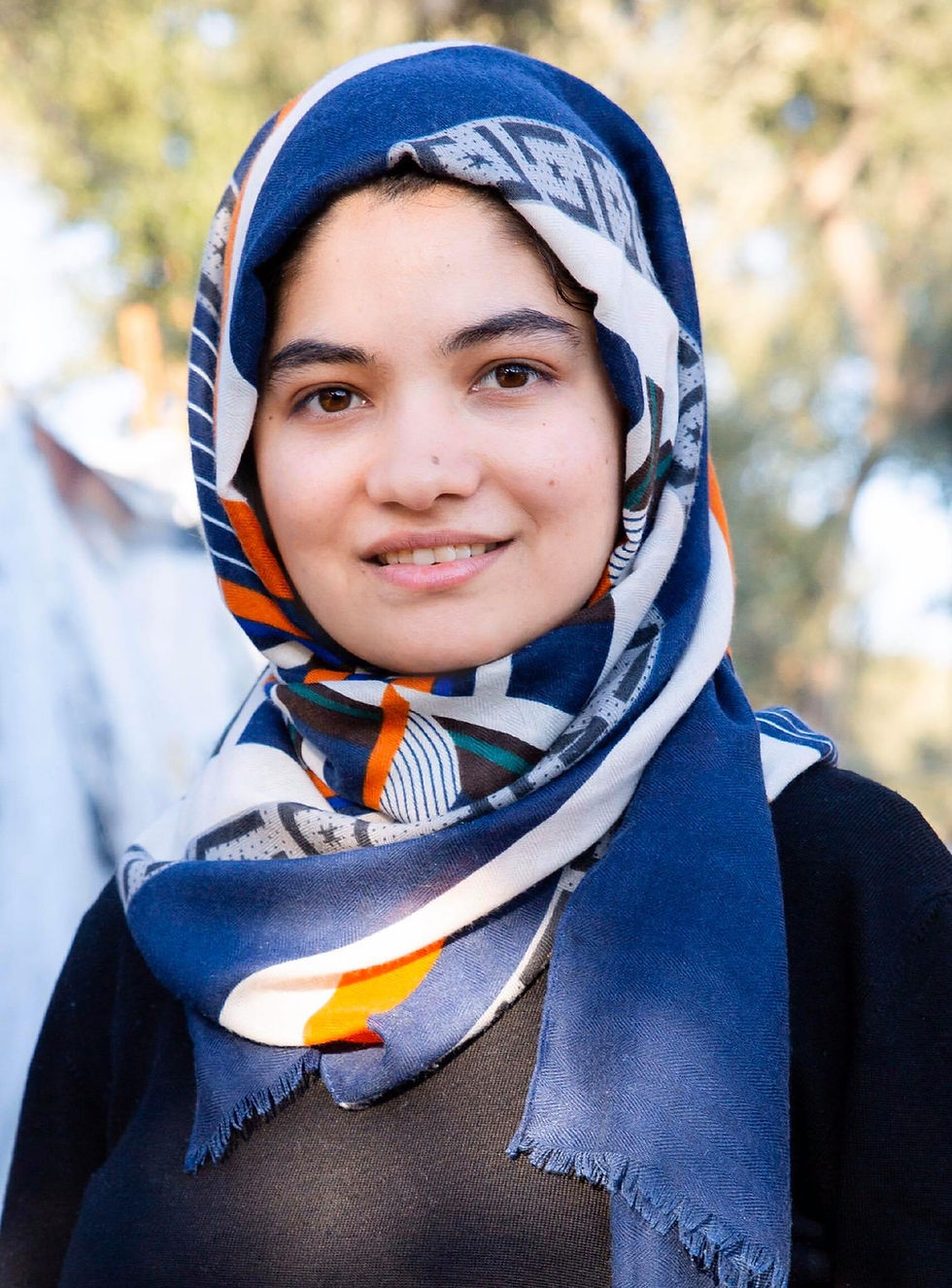Parwana: The Unbreakable
- Leena Zahra
- Jun 14, 2020
- 3 min read
Updated: Jun 14, 2020
A strong Afghan woman, storyteller, poet, refugee rights activist and education volunteer, Parwana’s determination to change the status quo uplifts everyone around her. She is not waiting for her future to be written for her and the other camp residents in the Moria and Ritsona Refugee Camps in Greece. She is the narrator of this journey, elevating the voices around her for a better future for all.

“...We are now in our future. No, we should fight for our future. We thought one or two years later, refugee things will change but it takes much longer…”
Fleeing Afghanistan at the age of 14 due to unrest, Parwana and her family were seeking safety where they could find it. But they, like anyone else, want to find a normal future, not having to fight for safety every single day. Along with her two younger sisters, two older brothers and parents, they also were thinking of Parwana’s other sister married on the Greek island, and another sister still in Afghanistan possibly facing danger. But a feeling of courage increased in her body, in her soul.
Arriving in Greece after 5 attempts and 1 year and a ½ in Turkey, faced some difficulties while trying to seek protection. Besides turbulent waters and unbearable camp conditions, Parwana and her family experienced unpleasant coast guards. Think about cramming 20,000 people in a place made for 3,000, completely unsuitable for a global health pandemic. It made Parwana think when questioned about why she was there:
“Is it a crime to flee, to leave war? Would you go back to a place where you don’t know if you will live?”
Despite this, she has taken matters in her own hands. Without the chance to continue her education, she started volunteering as an English teacher and initiated a series of lessons to inspire, hope and give strength to the youth. She listens to them, their demands as they feel unheard, working with schools made by refugees. Through this, she is also training other volunteer teachers for best practices in their communities. She also works with journalists, guiding them in communications. She has loved interacting with different cultures and traditions in the camps. They are united in the desire to change the circumstances being faced. As refugees, Parwana mentions they have to learn things much faster than the average person. But this does not deter her.
Speaking Persian, Peshtu, English, Turkish and German, Parwana’s sharp wit and tenacious spirit is felt by many cultures, many people. She is writing, interviewing the other camp residents as a trusted member with their stories to tell the world enough is enough, here are the people that can’t be forgotten. Through these daily conversations, Parwana has written two books: My Pen Won’t Break but Borders Will and The Olive Tree and the Old Woman, letters and depictions from the Moria and Ritsona Refugee Camps. She is currently working on a book of poems.
When speaking about how refugees are portrayed, Parwana says:
“Each person is like a book. Many emotions, skills, knowledge. But they are only talked about in terms of their problems. Communication with refugees needs to be embracing. Speak not just with empathy, but with solidarity. Start having conversations with refugees. You will one day find your child in a class possibly with a refugee. Not in your advantage to keep it separate. As long as we have war, we will always have refugees.”
If you check out Parwana’s YouTube Channel Parwana Amiri Official, she’s holding book launches, Corona Awareness Campaigns with the IOM, football sessions and art competitions. As she mentions on Instagram @parwanaamiriofficial during a local UNHCR art competition among Ritsona Camp, the “Talents, skills and passion is what [is] repressed during journey of seeking safety to all refugees. But we are all trying to raise the talents again.” Parwana creates a space of color, openness and creativity. The residents are more than the current depictions, and they have skill sets, dreams and desires that should be recognized with autonomy, with dignity.
What’s her dream one day? She plans to be a politician, to change policies and make a difference for other people. She is always listening to people, always listening to their stories. One of the medicines for refugees:
“For people to listen to them, listening to their stories can change many things. Hard for the residents to listen to each other and the stories. They have already experienced a hard life.”
It’s time to change the narrative. It’s time to have the discussions. It’s time for solidarity.
“...We are now in our future. No, we should fight for our future. We thought 1, 2 years later refugee things will change but it takes much longer…”







Comments